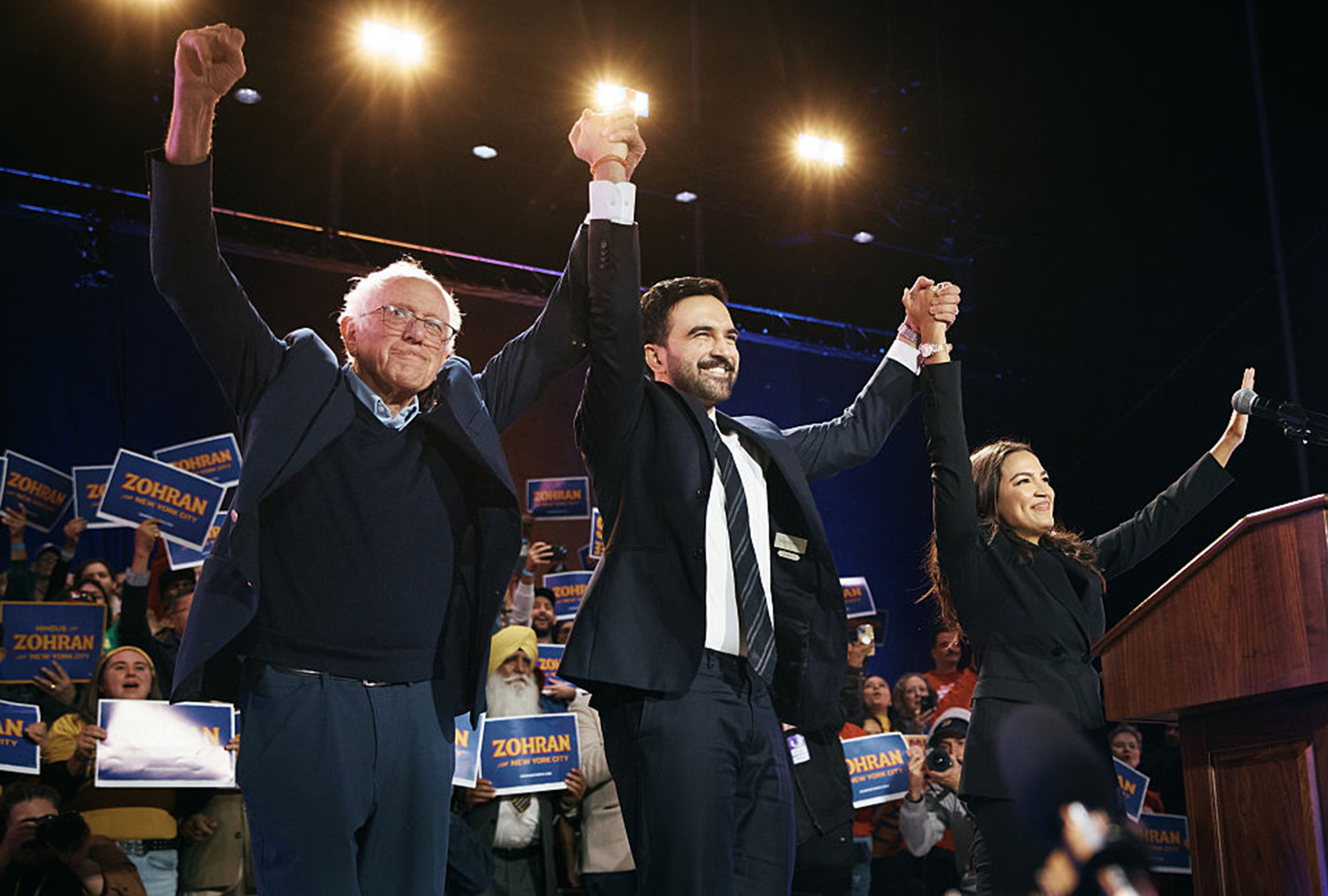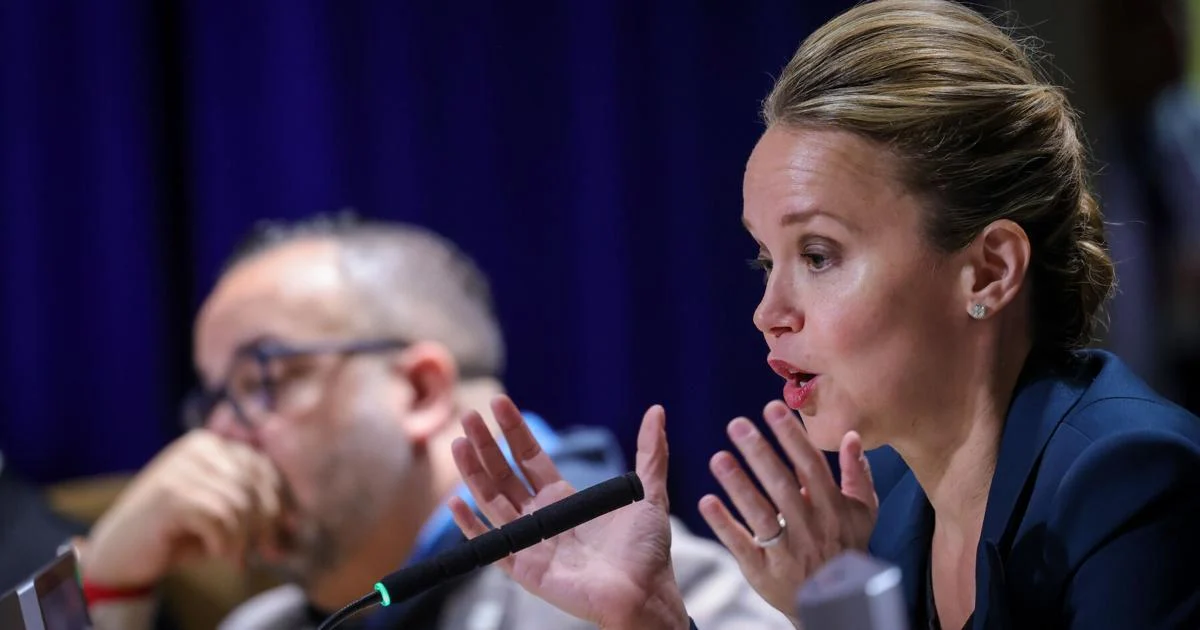Copyright Salon

It’s already clear that the election of Zohran Mamdani as New York City’s mayor is a historic moment — not just for the city but for the Democratic Party and for America’s future on the other side of Donald Trump. Exactly how that history will unfold, and what its long-term consequences will be, are questions we can’t possibly answer here and now. By last Tuesday, Mamdani’s victory was no longer a surprise; he’d held a substantial lead in the polls for months. But it still came as a shock to the system and broke basically all the rules of American politics, at least as understood by its self-appointed caste of experts. A youthful Muslim socialist born in Africa had toppled a political dynasty, as he told his supporters on election night, and overcome the united opposition of nearly the entire political mainstream. He did so without making the slightest apology for who he is or what he believes, without making nice with ideological enemies, and without pivoting toward the so-called center. (I’m not the first to observe that Republicans spent the Obama years fantasizing about a Marxist Muslim from Africa; somehow they conjured up a real one.) One can argue that Mamdani’s dramatic win was a kind of fluke, a black-swan event that reveals more about the Democratic Party’s institutional weakness than about a major generational or ideological shift. But doesn’t that come to the same thing in the end? In any event, his campaign generated unprecedented enthusiasm, driving the largest turnout in a New York City election for 56 years — and also generated intense antipathy. One of the most extraordinary facts of this extraordinary election is that disgraced former governor Andrew Cuomo’s relentlessly negative campaign, which offered no vision of New York’s future beyond “not the Muslim guy,” also drove enormous turnout. As Salon’s Russell Payne has reported, Cuomo’s last-ditch third-party candidacy, following his richly deserved Waterloo in the June Democratic primary, seemed doomed from the get-go. But incredibly, Cuomo actually got more votes than any winning mayoral candidate since Rudy Giuliani in 1989 — and still lost to Mamdani by more than 180,000 votes. Everything about that seems literally inconceivable to the political and media establishment, which has spent the last year recalibrating itself to fit the supposed vibe-shift of the second Trump presidency and now must find ways of coping with the Mamdani-quake. There was nothing terribly surprising about the vicious and hysterical Islamophobic meltdown on the MAGA-friendly right, although it’s surely a measure of democratic decay that no one blinks an eye at Rep. Elise Stefanik, who plans to run for governor of New York next year, slandering a newly elected official in her own state as a Communist, a jihadist, an antisemite and a supporter of terrorism. That outpouring of overt bigotry from the right — which, even in the Trump era, would never be directed at a candidate who was Black or gay or Jewish or Latino — creates a kind of moral vacuum in which less obvious signs of terror and confusion look almost normal. The political and media establishment, which has spent the last year recalibrating itself to fit the purported vibe-shift of the second Trump presidency, now must find ways of coping with the Mamdani-quake. After Mamdani’s fiery victory speech on Tuesday night, CNN commentators Van Jones and David Axelrod were rendered almost speechless. Perhaps they understood for the first time, that the Mamdani moment represents an existential threat to the entire political ecosystem in which they’re embedded. (Right-wing commentator Scott Jennings was delighted by their distress, although his analysis sounded a lot like, “Your Majesty, the peasants are at the gates with torches and pitchforks. That’s good!”) Jones and Axelrod are longtime Democratic insiders and self-identified liberals; neither has accused Mamdani of being a traitor or a terrorist and surely never would. Both have labored to include his populist appeal and obvious political skillset in a more capacious understanding of their party’s future. But Mamdani’s speech was not the ritual of unity and healing they wanted and expected, and they were reduced to mumbled excuses about the microphone, his tone of voice and his inexperience. None of that was the issue, fellas. Mamdani was forceful, immensely ambitious and sometimes openly confrontational. He wasn’t talking to them or to the decrepit Democratic power structure they represent. He was talking straight to his actual voters and, beyond them, to an entire disenfranchised and alienated generation that believes, or rather knows, that power structure has failed them entirely. As I suggested earlier, there’s no way to know whether Mamdani will be successful in his wildly unlikely new job as chief executive of the capital of global capitalism, or how the existing political system may change him, crush him or accommodate him. Those are important questions, but perhaps not the most important ones. Various pseudo-smart pundits have already drawn the overly clever analogy that Mamdani is like Trump, despite being nothing like Trump. It’s an intentionally insulting comparison that embodies a grain of truth: What they mean, of course, is that Mamdani came out of nowhere and broke all the rules, engaged lots of people who rarely or never vote, and won an election he had no business winning. It’s not mere coincidence that the same kinds of observers said exactly the same things about Bernie Sanders during his coulda-woulda-shoulda 2016 presidential campaign. If there are three fairly obvious ways that Mamdani’s ascent threatens the Jones-Axelrod axis of power and influence, that might have been the one they didn’t see coming. After the two Sanders campaigns, the elections of Alexandria Ocasio-Cortez and the rest of the “Squad,” and the electoral disaster of 2024, factional conflict within the Democratic Party seemed to be on hold for as long as the Trump emergency continues. It’s a safe bet that nobody in Democratic power circles truly loved the idea of Andrew Cuomo’s big comeback, but he was eager for redemption, had enormous name recognition and was facing no serious opposition except a rookie state legislator with a funny name who literally called himself a socialist. LOL! Various pseudo-smart pundits have already drawn the overly clever analogy that Mamdani is like Trump, despite being nothing like Trump. It’s an intentionally insulting comparison that contains a grain of truth. Well, nobody’s laughing now, after the actual mayor-elect began his speech by quoting Eugene V. Debs, the legendary Socialist Party hero who ran for president five times, getting nearly a million votes in 1912. Not only has the intra-party Bernie v. Hillary conflict of 2016 been renewed, Mandani’s victory suggests that a long-anticipated generational shift is now underway that may fundamentally transform the battlefield. That’s the second threat to the Jones-Axelrod clique, which they still hope they can navigate by the strategic deployment of hand-picked, somewhat-young “moderates” like House Minority Leader Hakeem Jeffries or likely 2028 candidate Pete Buttigieg or Rep. Ritchie Torres of New York, the No. 1 recipient of pro-Israel money in the entire Congress. We shall see. There’s a third factor, arguably the most obvious of all and the most difficult for mainstream commentators to handle. I referred to this earlier: American Muslims, as Mamdani and his supporters have recently discovered, are (along with trans people) the last acceptable targets for the kind of unmotivated, unreasoning bigotry and hatred that these days generally requires some degree of concealment. There is plenty of racism, antisemitism, homophobia and sexism in American society, God knows — let us note that Mamdani deliberately mentioned antisemitism in his victory speech before he mentioned Islamophobia — but nobody is out there calling Josh Shapiro or Cory Booker or Buttigieg traitors and terrorists based on absolutely nothing beyond their race, heritage or identity. Want more sharp takes on politics? Sign up for our free newsletter, Standing Room Only by Amanda Marcotte, also a weekly show on YouTube or wherever you get your podcasts. Mamdani couldn’t win an election with Muslim votes alone, of course, and certainly didn’t. But his victory reflects the dynamics of a rapidly changing city where about a million Muslims have become fully integrated members of society, as neighbors, friends and schoolmates of the non-Muslim majority. (My downstairs neighbors, for instance, who always share food with me during the Eid festivals. Their eldest son is a New York police officer.) What Muslim-hating MAGA moonbat Laura Loomer calls the “Islamic takeover of America” is the political awakening of an immigrant group that is tired of being despised and demonized, much as previous generations of Irish, Jewish and Italian immigrants were. It may be true that Mamdani won this election in large part because his opponent was a thoroughly despicable human being who disgraced himself further with the worst kind of gutter bigotry and a final, doomed alliance with Elon Musk and Donald Trump. But that despicable person was either tolerated or embraced by the political establishment, which never imagined that an untested young person who threatened their interests in so many fundamental ways could possibly win. Whatever does or doesn’t happen during Mayor Mamdani’s tenure, Van Jones and David Axelrod and everyone they dine with are right to be scared. Because that cowardice and blindness, that failure of imagination, are signs of impending doom.



